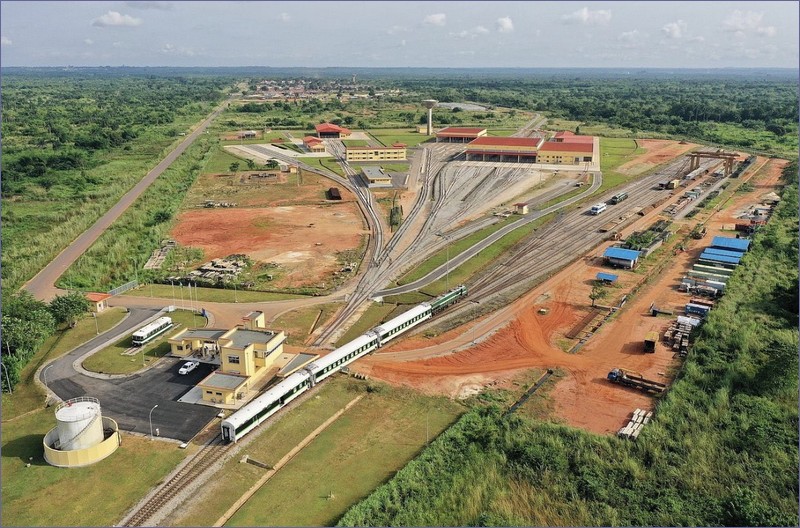Nigeria has more than 4,000 kilometers of railway network of both: narrow gauge (1067 mm) and standard gauge (1435 mm). Almost all railway lines are neglected, but in 2015, the authorities announced a program for the rehabilitation of the railway network. A number of railway projects are under way.
Last updated: 28.12.2023
In 1896 the British colonial government in Nigeria started construction of the first railway line in present day Nigeria. The first stretch was opened in 1898 between Lagos and Iddo. The line was extended to Abekouta and reached Ibadan in 1901 (190 km). In 1911 the line was extended to Minna.
In 1916 the railway line between Port Harcourt and Enugu in eastern Nigeria was inaugurated. After Markudi Bridge across River Benue was completed, the line reached Kaduna in 1932.
Until 1955 Nigerian Railways were managed by the colonial British government. In 1955 a public corporation Nigerian Railway Corporation was founded.
The late 1990s and early 21st century saw the decline of railways in Nigeria. Infrastructure was in poor state, overcrowded suburban trains in Lagos were famous for violent crimes.
In 2014 the standard gauge line standard gauge line from Abuja to Kaduna was completed. The construction started in 2011. Nigerian President Muhammadu Buhari officially inaugurated the line for commercial services in July 2016.
Train travel in Nigeria – domestic trains
There are three long-distance passenger trains in Nigeria. Trains run on the following routes:
Lagos – Ibadan
Itakpe – Warri
Abuja – Kaduna
Trains run daily, one train in each direction. All trains in Nigeria are operated by the Nigerian Railway Corporation.
Trains are comprised of Chinese-produced coaches of economy, business and first class. Train tickets must be purchased in person at the train station. Carriages are clean, neat and equipped with air-conditioning. There is also a dining car. The average train speed is high.
Nigeria Railway Corporation – timetable, prices, additional information
Railway map of Nigeria (Wikimedia Commons)
Suburban and monorail services:
Abuja Light Railway – 27-kilometer railway line opened in 2017 linking Abuja with an international airport. Closed in 2020, probably abandoned. There were plans to build a half-dozen railway lines a 290-kilometer network that would connect the city to the satellite towns.
Lagos Rail Mass Transit system – the Blue Line has finally begun its long-awaited commercial operations in 2023. The 13-kilometre-long metro railway line was built by China Civil Engineering Construction Corp. It links mainland part of the city with the Lagos Island, where many businesses are located. The metro system in Lagos was initially planned initially planned in 1983. The railway line will ultimately be 27 kilometers long.
Kaduna Light Rail – construction is underway.
Rivers Monorail in Port Harcourt – hybrid tram/monorail system from the old Port Harcourt to the Greater Port Harcourt (2,6 km). There were plans to extend the line, but the monorail was probably abandoned.
Calabar Monorail – Nigeria’s first fully operational monorail. The single-track shuttle runs from the Tinapa Business and Leisure Resort to the Calabar International Convention Centre (CICC) at the Summit Hills (1,1 km long). Calabar, state capital of Cross River state.
Train travel in Nigeria – international trains
There are no international trains in Nigeria and the country has no railway link with adjacent countries. The construction of the railway line from Kano to Maradi, the second-largest city in Niger, is underway.
See also:
